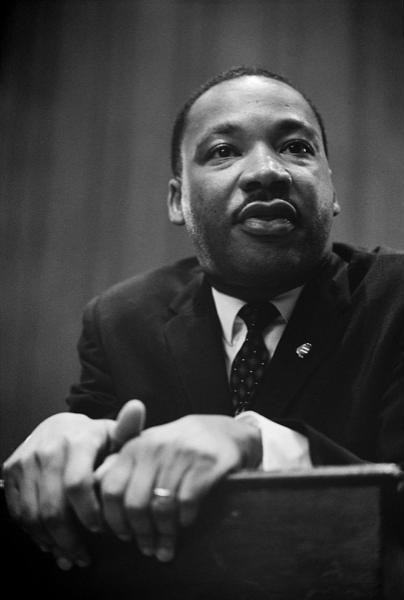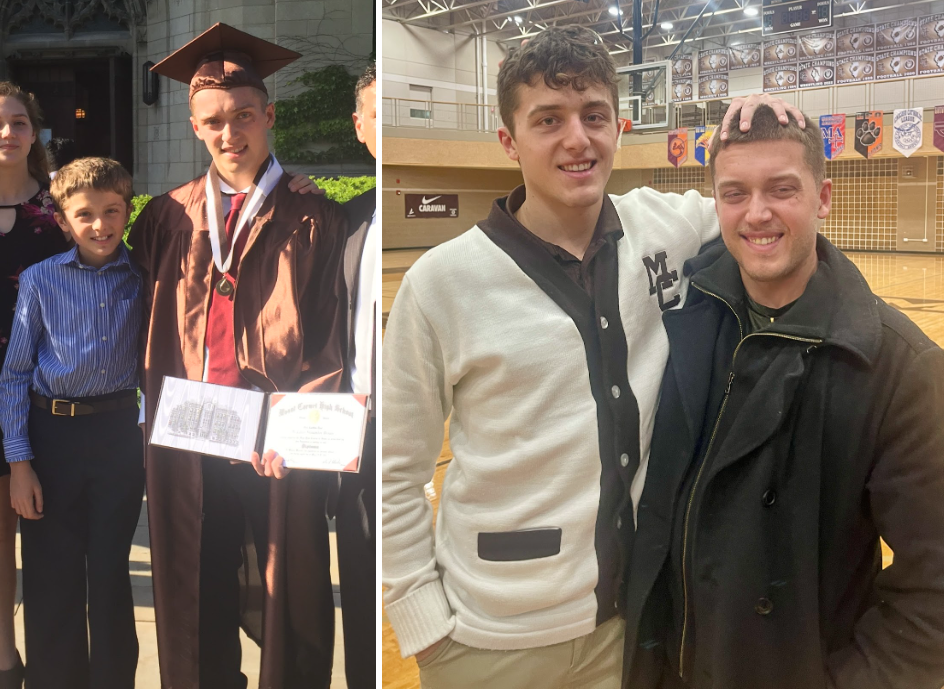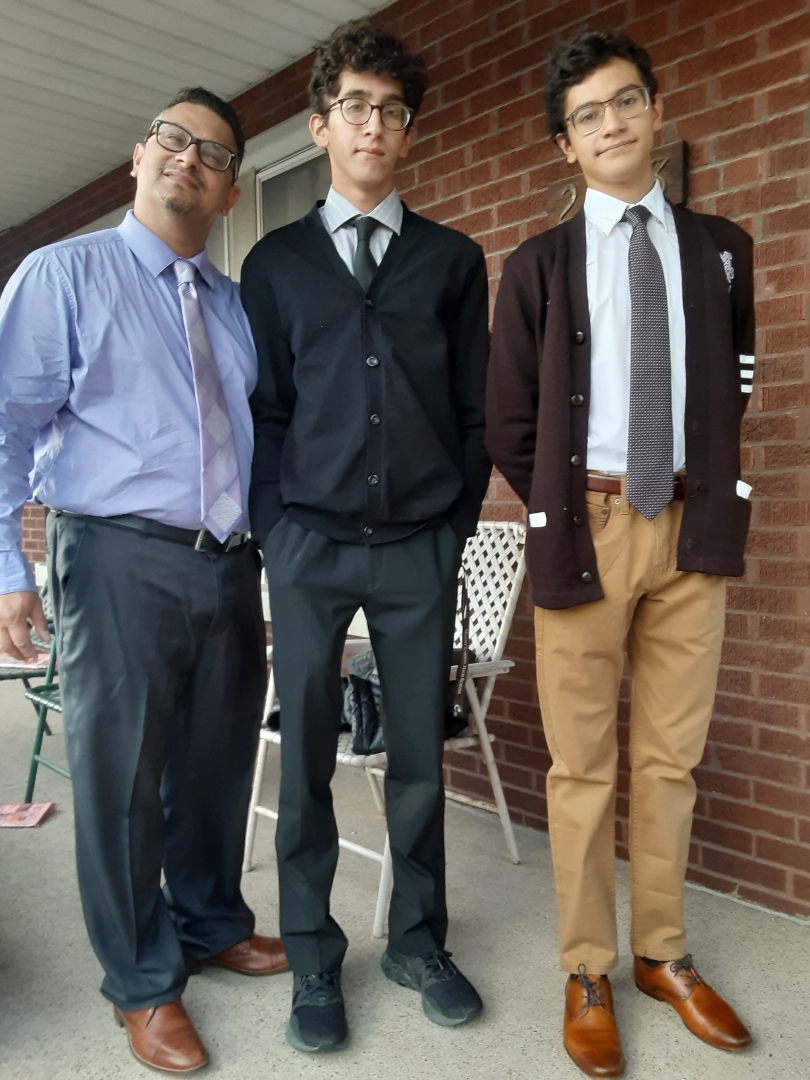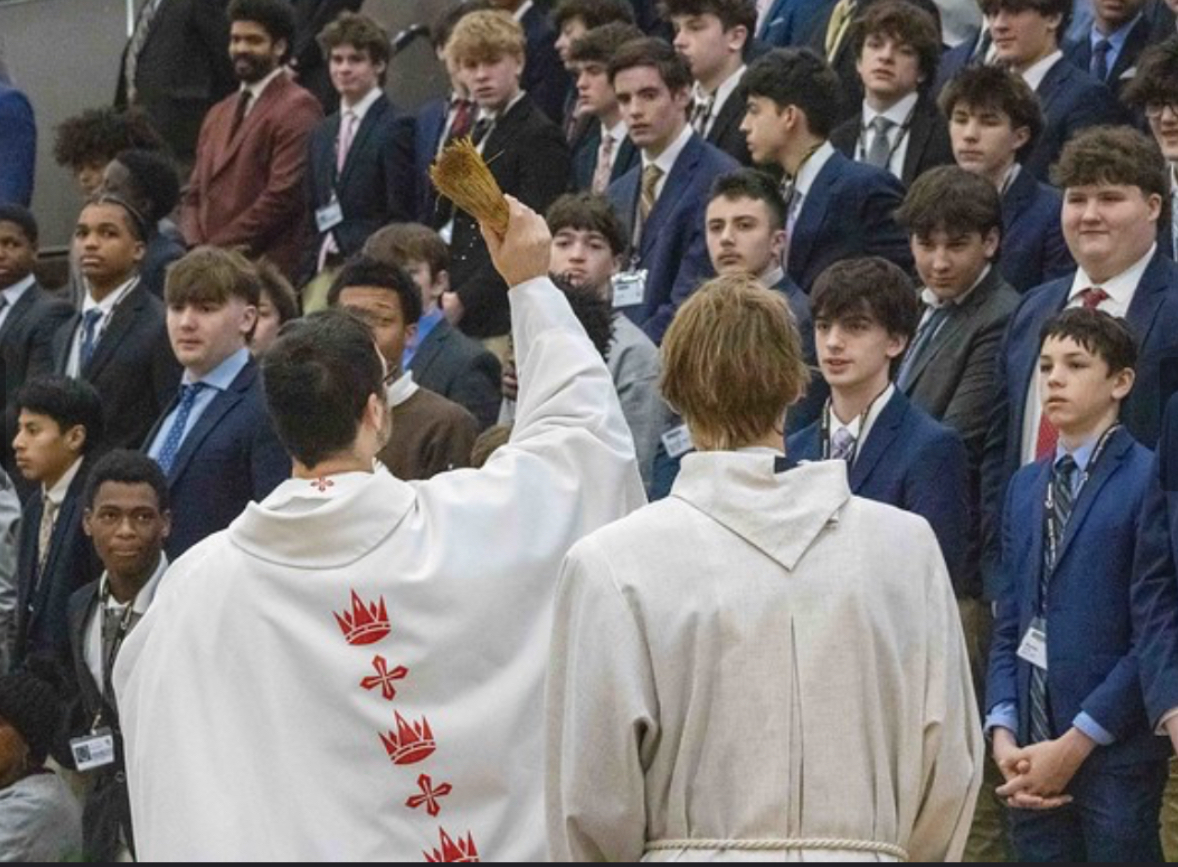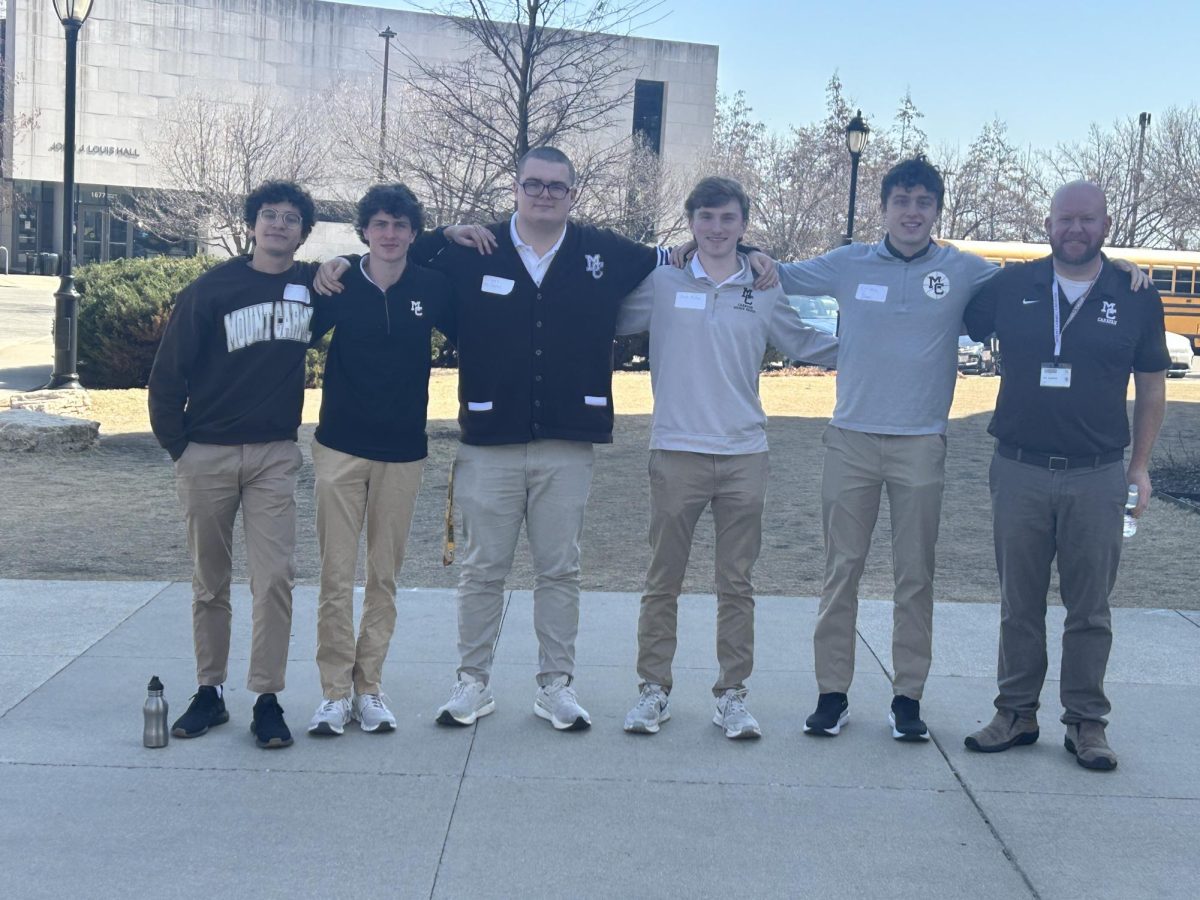Care for others. Respect all. Act with integrity. Work hard. Lead by example. These are the traits our school uses to define a Man of Carmel.
Dr. Martin Luther King, Jr. lived all of these traits. His legacy of non-violent activism embodied what a Man of Carmel truly is.
“If you look at the traits of being a Man of Carmel, Dr. King would fit very well,” said Fr. Jim Lewis ’72, who witnessed the social turmoil of the 1960s as a young man. “I would also add the word courage. Having the amount of courage he had even with countless threats towards him.”
Dr. King didn’t stop at his goal to eradicate the injustice in America. Even after President Lyndon B. Johnson signed the 1964 Civil Rights Act, King returned to the streets to continue his work.
He came to Chicago multiple times to participate in marches and rallies. The most infamous incident involving King in Chicago occurred at Marquette Park at 67th and Kedzie Ave. King was there to protest unfair housing costs and conditions, and when King entered Marquette Park, he and his protestors faced a crowd of 4,000 white residents with Confederate flags and racist signs who threw rocks and other objects at marchers. During the clash, Dr. King was hit with a rock and knocked to the ground but still kept marching.
“I’ve been in many demonstrations all across the South, but I can say that I have never seen— even in Mississippi and Alabama — mobs as hostile and as hate-filled as I’ve seen here in Chicago,” said Dr. King after the Marquette Park march.
With the hate and hostility he experienced, Dr. King never stopped fighting for justice with the same traits as a Man of Carmel.
He viewed everyone as human and respected who they were. This exemplifies “respecting all,” a trait of being a Man of Carmel.
“Dr. King has a broad perspective on human rights and is a source of inspiration even today,” said Mrs. Jennifer Davis, theology teacher and moderator of the Multicultural Club at MC. “He was a man who fought for justice for all. He was an activist, a humanitarian, he was a man of peace, and he faced a lot of challenges for his cause.”
In photos of Dr. King at any march or rally, he’s always at the front of the crowd or over the crowd. This is leading by example, something he chooses to do so even if danger is ahead. He never backed down. In 1964, he was arrested in Birmingham for peacefully marching against injustice.
In his “Letter from a Birmingham Jail,” he calls for unity of his supporters, regardless of color, and argues that they have a moral responsibility to disobey and break what he calls “unjust laws.” Even behind bars, he worked hard to ensure that the Birmingham movement carried on, just as Men of Carmel are called to work hard.
“One of the most valuable aspects of MLK was that he confronted people who are not racist, but in fact were unconsciously racist,” said Fr. Lewis.
Dr. King’s moral mission was to end systemic racism and eradicate poverty, and he did it all in the name of God. As a Carmelite school, the Prophet Elijah is often invoked in classes and ministry at MC. Elijah is the spiritual father of the Carmelites and, like most prophets, fought against authority and defended those mistreated by that authority. Dr. King preached the same integrity that the prophets and Elijah called for.
This justice and righteousness are also important for students to learn. For example, in Mrs. Davis’ theology class, Dr. King’s morals are textbook values and traits that students are called to act out every day.
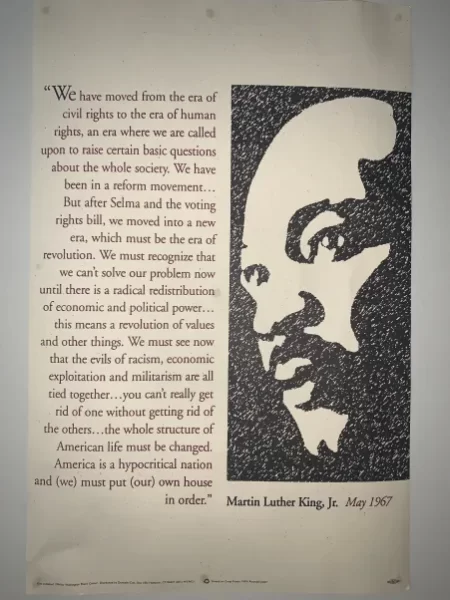
“In order for something to be passed on from generation to generation, it needs to be taught,” says Mrs. Davis. “Students need to remember that these movements are part of American history. We’re looking at the past, but how are studying from those lessons to make things better now?”
History might be what our past was, but it’s more of a list of failures and mistakes we made. Martin Luther King Day isn’t a free day off from school or work but a national day of civil rights with a figure at its head.
Unfortunately, Dr. King would never see the impact he had on the world and the United States. On April 4th, 1968, during a visit to Memphis, Tennessee, to support striking sanitation workers, he was shot and killed on a balcony at the motel he was staying at.
“I remember being at home and watching TV when the news bulletin came on that Dr. King had been assassinated,” said Fr. Lewis, recalling the events of when he was in 8th grade at the time. “I first thought to myself, this is a terrible tragedy, and second of all, this is bad in ways I can’t even imagine at 14.”
Although Dr. King dedicated his life to civil rights, that fight isn’t over. Injustice is still a threat to society. From conflict in Europe and the Middle East to mistreatment of others in our own country, young men at MC should carry the same values and traits they learned that Dr. King used. “Injustice anywhere is a threat to justice everywhere,” he wrote in his “Letter from a Birmingham Jail.”
“We still have work to do, but we have to stand on the shoulders of these men and women who really fought for civil rights,” said Mrs. Davis, “The men and women who opened the pathway or passed the baton to us, and we need to do that by taking that baton and running with it.”

